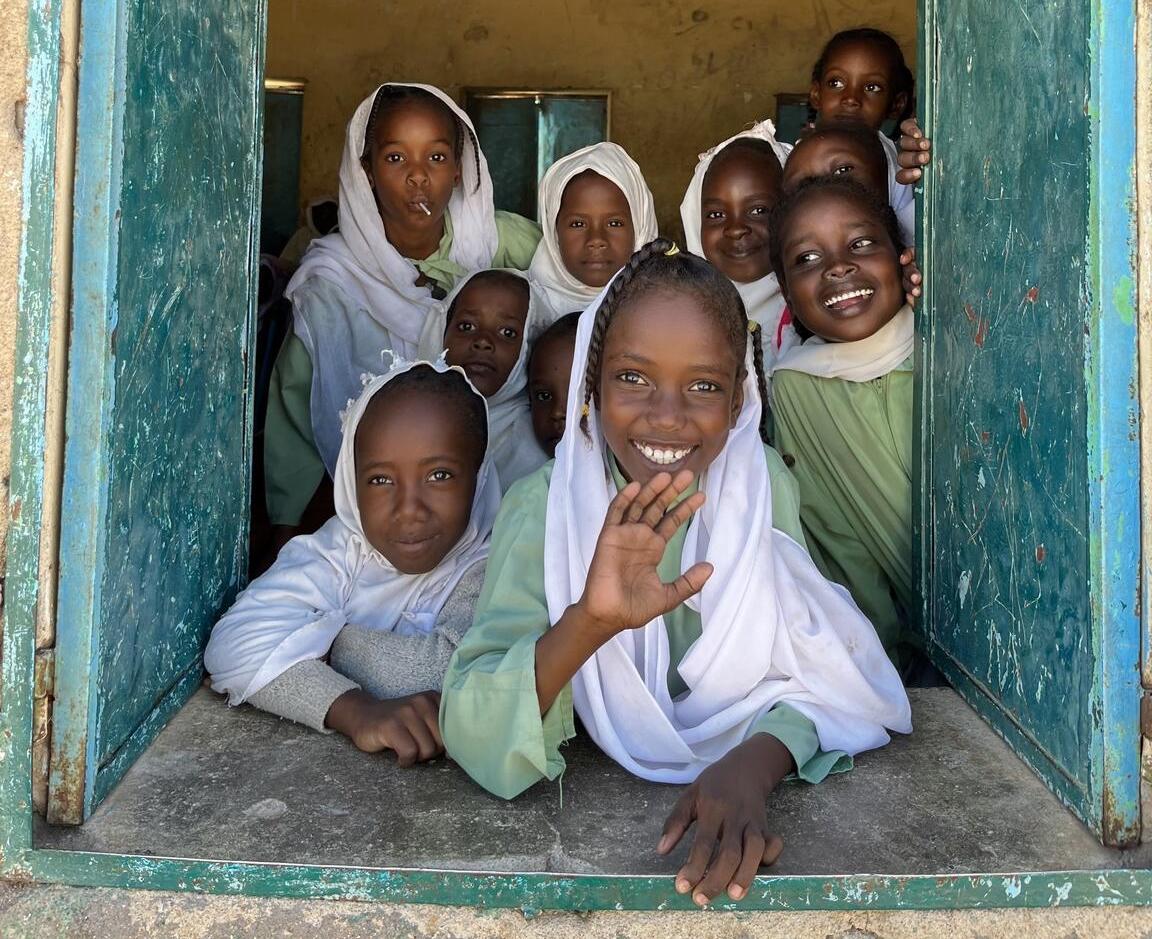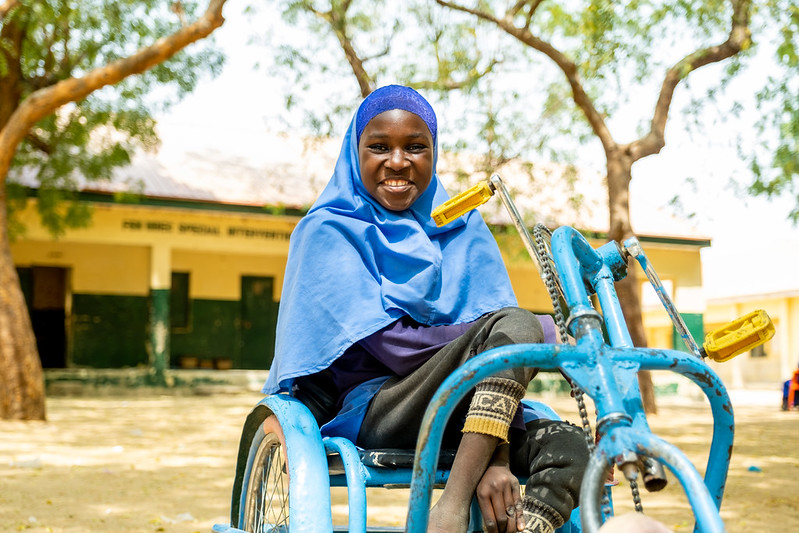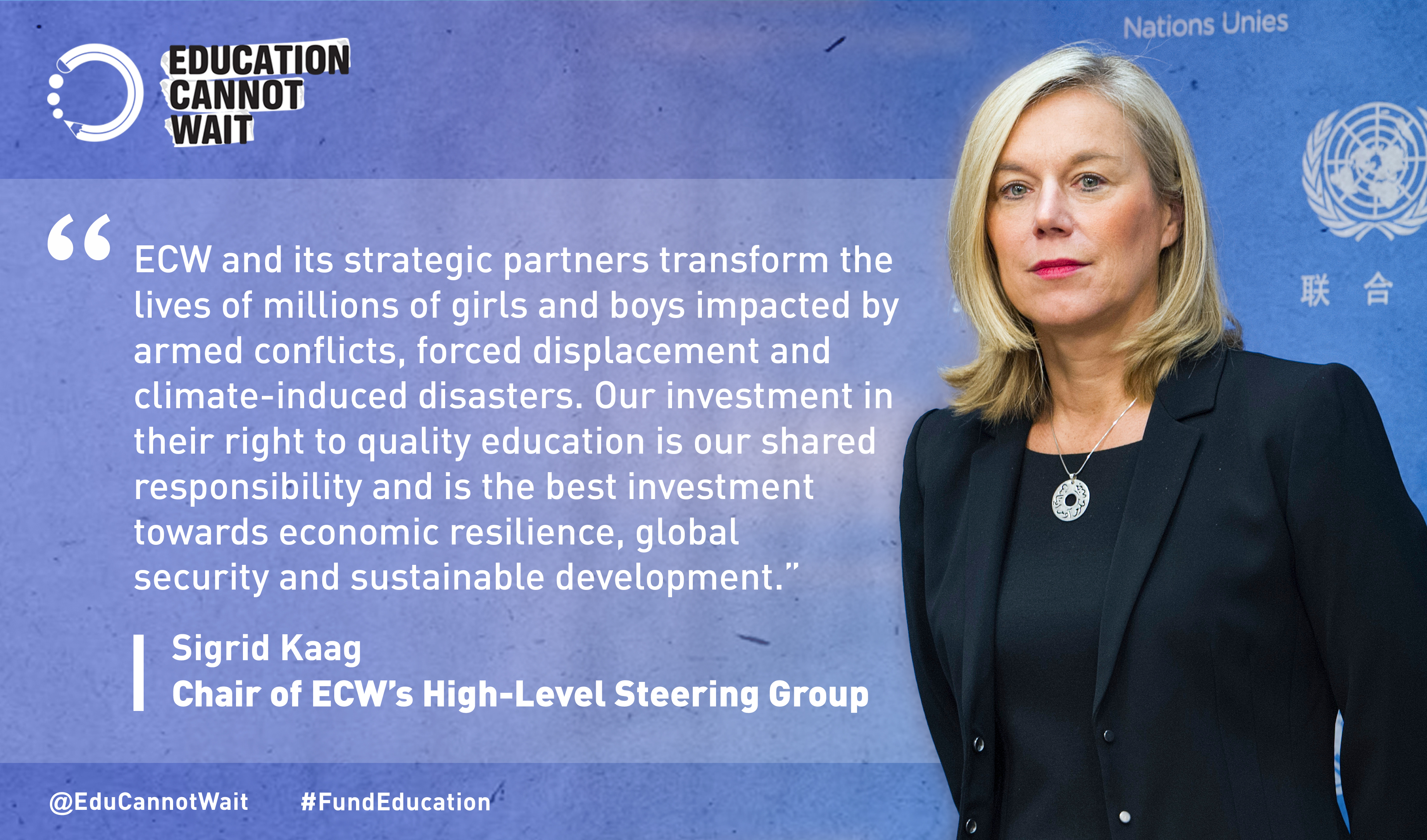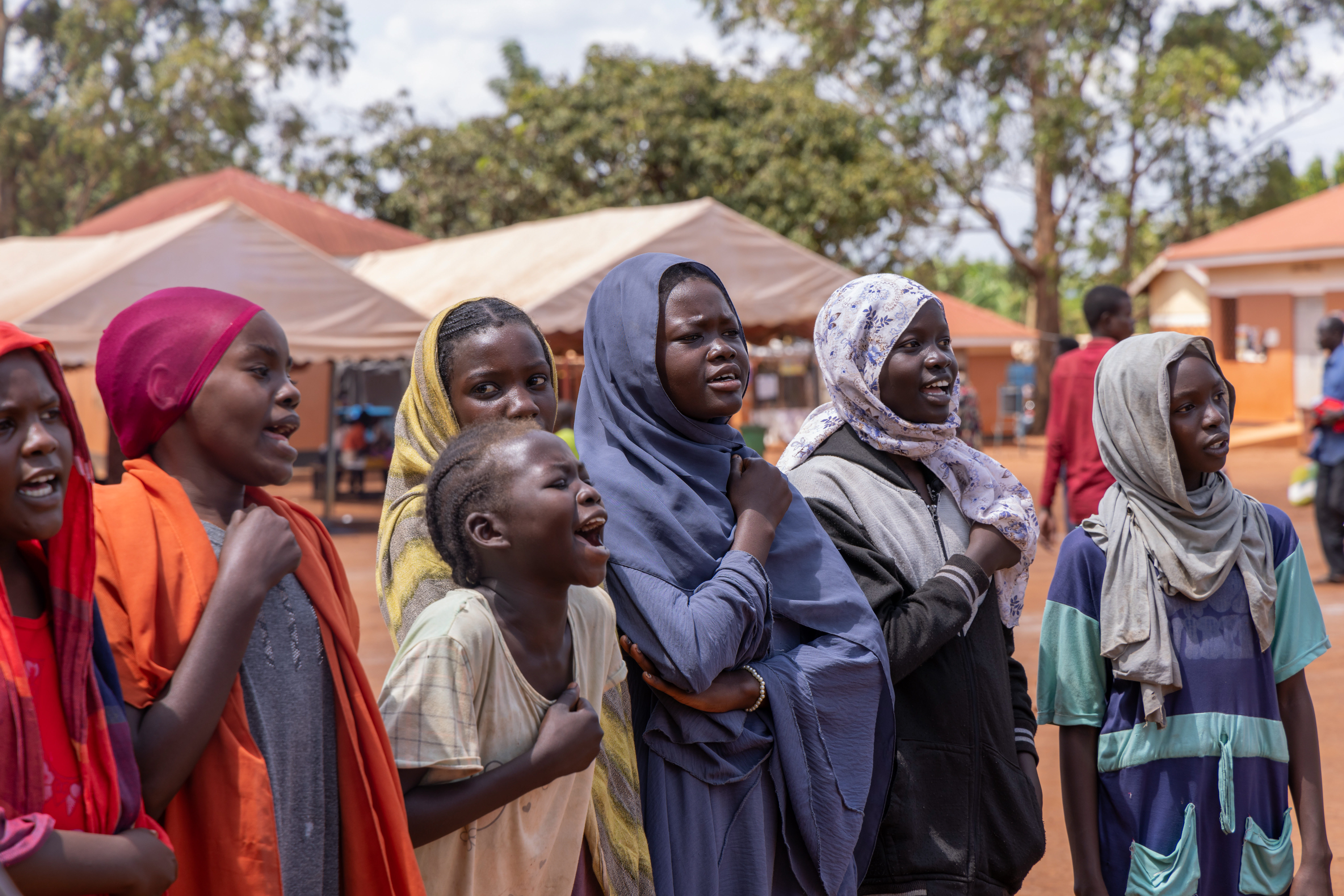Education Cannot Wait Announces US$5 Million First Emergency Response Grant in Sudan and Calls on World Leaders to Expand Financial Support

Total ECW funding in Sudan tops US$28 million, but as conflict continues, 7 million children are out of school in Sudan. Violence and increased displacement are putting children at grave risk. Fast-acting response, delivered by Save the Children and UNICEF, will reach over 86,000 girls and boys with life-saving education support
As the conflict rages on in Sudan, Education Cannot Wait (ECW) and its strategic global partners are stepping up to provide life-saving education support for the country’s most vulnerable children. ECW announced today US$5 Million in new funding for the education in emergencies response in Sudan. ECW urges donors, the private sector and philanthropic foundations to quickly mobilize more funding for Sudan. Total ECW funding in Sudan now tops US$28 million.
The 12-month grant will be delivered by Save the Children and UNICEF, and will reach 86,000 vulnerable school-aged girls and boys in West Darfur and White Nile, with a focus on those who are affected by the conflict. The grant focuses on improving access to quality, inclusive, gender-sensitive and child-friendly education. It will contribute to achieving improved learning outcomes through support to learning centres, ensuring teachers have the training, tools and incentives to do their jobs – and providing life-saving access to holistic education support to ensure the protection and well-being of children.
The grant delivers quality education with a high-degree of speed, efficiency and cross-functional collaboration. Nevertheless, a large funding gap persists, with recent estimates indicating at least US$40 million will be required to scale up life-saving education in emergencies response in Sudan.
In response to the regional crisis, ECW Executive Director Yasmine Sherif led high-level UN missions to the border areas in both Chad and South Sudan to assess the situation, with the Fund also announcing new investments in the Central African Republic, Chad and South Sudan in recent months.
“Children have been killed, have lost family members, have had to flee their homes in the most challenging circumstances and have seen their education abruptly interrupted. This conflict is breaking down basic social services in Sudan - with school aged children and their teachers paying the highest prices. With access to life-saving education opportunities, we can protect girls and boys against the scourge of violence, child marriage, forced recruitment into armed groups, exploitation and abuse. ECW brings hope to children in devastating situations: education is the best investment we can make in providing children with both protection and a sense of normalcy within a devastating crisis. However, it requires all of us to be generous in funding current and new opportunities to withstand the shocks of the conflict,” Sherif said.
With clashes between the Sudanese Armed Forces (SAF) and the Rapid Support Forces (RSF) continuing into their fourth month, the situation is dire. Recent estimates indicate that the conflict has fuelled the displacement of more than 2.6 million people within Sudan, and forced an additional 855,000 people – including refugees, asylum seekers and returnees – to flee to neighbouring countries.
The conflict is adding to the interconnecting challenges of violence, poverty, forced displacement, climate change and other protracted crises that have plagued Sudan for years. In all, nearly 7 million children were out of school (more than one in three) prior to the outbreak of war and about 70% of those in school were not attaining basic literacy and numeracy skills.
The conflict is further aggravating the situation. Approximately 39% of those displaced are primary and secondary school-aged children (aged 6-18). With such rapid displacement, it is expected that there will be a high caseload of unaccompanied and separated children in need of family tracing and reunification services, specialized mental health and psychosocial support, and heightened safety and protection within child friendly spaces and learning centres.
“UNICEF appreciates the timely investment from ECW to ensure children are able to access safe and child-friendly learning spaces amidst a catastrophic situation that is sadly deteriorating. A safe learning space gives children a place to play, socialize, and be a child. With this critical funding, we are able to help children return to learning, restore hope and offer a much-needed sense of safety and normalcy,” said Mandeep O’Brien, UNICEF Representative in Sudan. “But let us not stop here. We need all hands-on-deck for the fighting to stop, for humanitarian access to improve – including through the alleviation of bureaucratic impediments – and for funding to be unlocked so we can scale-up our crisis response and protect the rights of children caught in the middle of this devastating crisis,” she added.
“The effects of this conflict on children are immeasurable, over 8.6 million school-aged children have had their safety, security, well-being, and education disrupted and continue to face many other threats. A safe learning environment is their refuge, offering them hope, and shielding them from these threats, onto a path of recovery. The ECW funding will ensure Save the Children can provide support to over 41,000 children in urgent need of education support with much-needed lifesaving education interventions which will unlock their potential and development. However, much more needs to be done,” said Save the Children Country Director, Dr Arif Noor.
The new investment will build and rehabilitate classrooms, provide learning materials, improve access to drinking water and gender-sensitive water and sanitation facilities. To ensure safety and protection, the ECW-supported learning centres will have functioning psychosocial, legal, protection, and/or disability referral mechanisms in place, and children’s clubs will help improve life skills and community participation – with additional targeted supports on citizenship education and psychosocial support to help girls and boys recover from the ordeals of displacement and violence.
Education Cannot Wait, the United Nations global fund for education in emergencies and protracted crises, continues to work with governments, donors, UN agencies, civil society and other key strategic partners in Sudan and across the region to scale-up the education in emergencies response to the evolving and complex crisis.
Note to Editors
About Education Cannot Wait (ECW):
Education Cannot Wait (ECW) is the United Nations global fund for education in emergencies and protracted crises. We support quality education outcomes for refugee, internally displaced and other crisis-affected girls and boys, so no one is left behind. ECW works through the multilateral system to both increase the speed of responses in crises and connect immediate relief and longer-term interventions through multi-year programming. ECW works in close partnership with governments, public and private donors, UN agencies, civil society organizations, and other humanitarian and development aid actors to increase efficiencies and end siloed responses. ECW urgently appeals to public and private sector donors for expanded support to reach even more vulnerable children and youth.
On Twitter, please follow: @EduCannotWait, @YasmineSherif1, @KentPage
Additional information available at: www.educationcannotwait.org
For press inquiries:
Anouk Desgroseilliers, adesgroseilliers@un-ecw.org, +1-917-640-6820
Kent Page, kpage@unicef.org, +1-917-302-1735
For other inquiries: info@un-ecw.org
For Press Inquiries:
Anouk Desgroseilliers:
adesgroseilliers@un-ecw.org
+1-917-640-6820
Kent Page:
kpage@unicef.org
+1-917-302-1735



